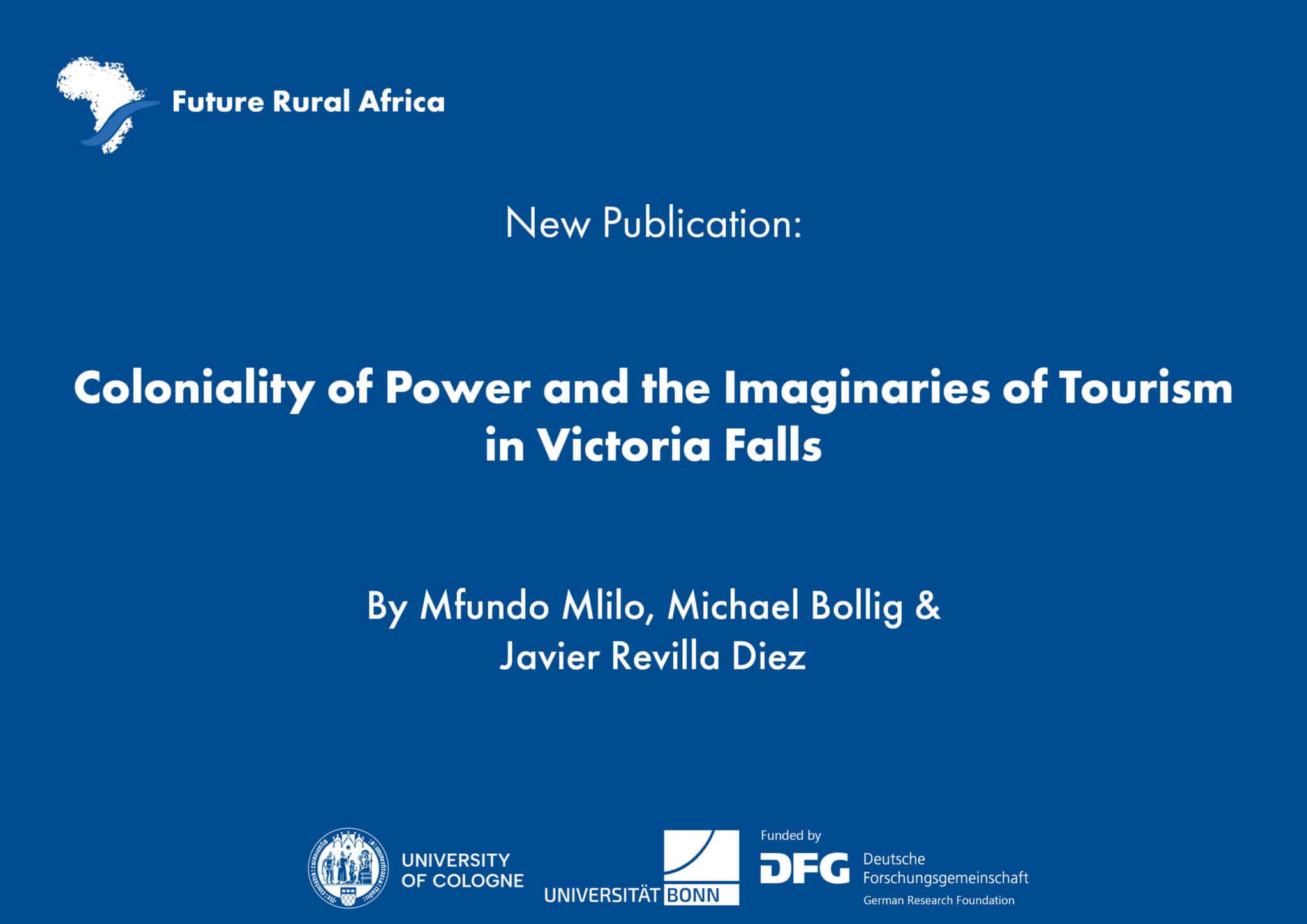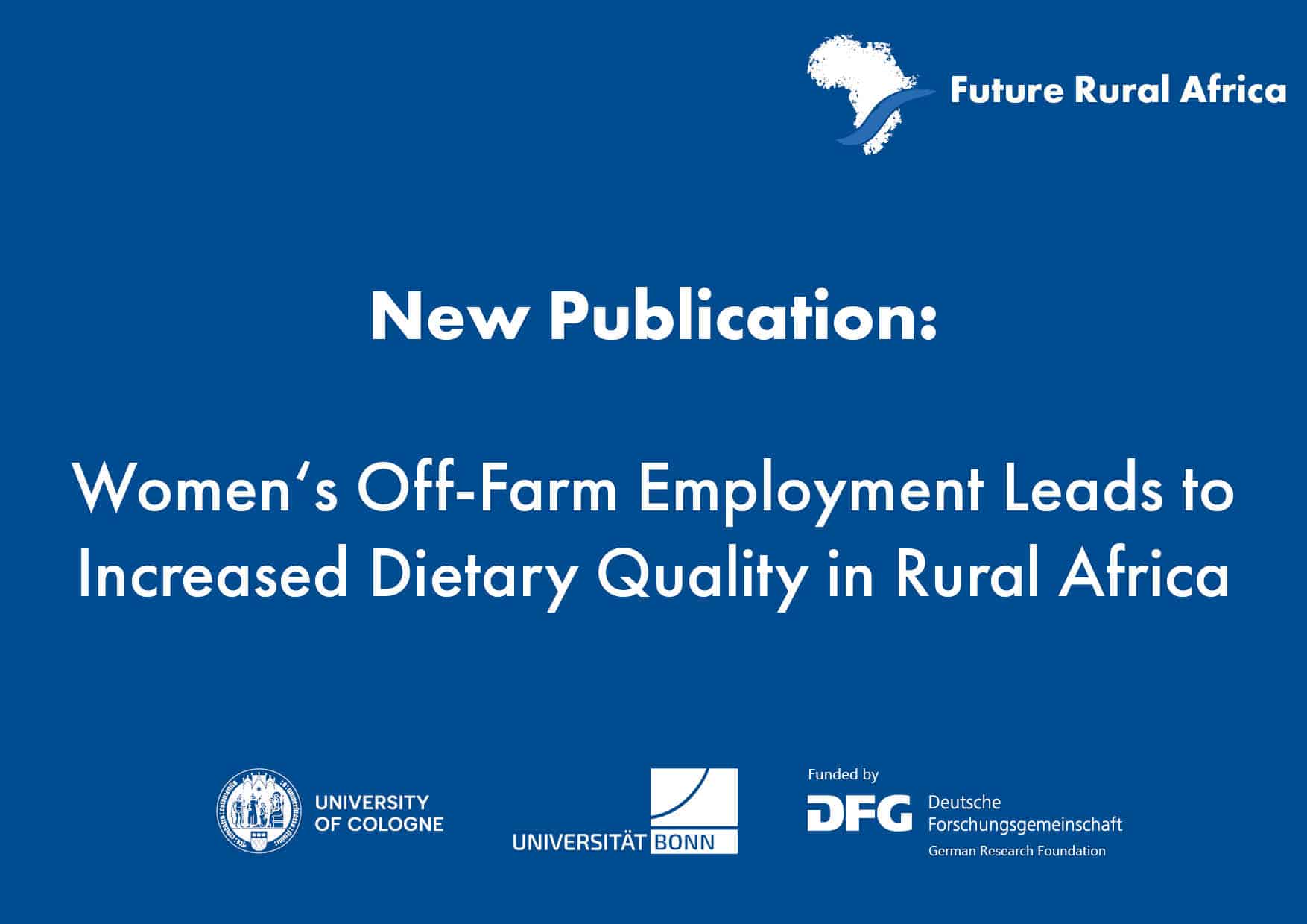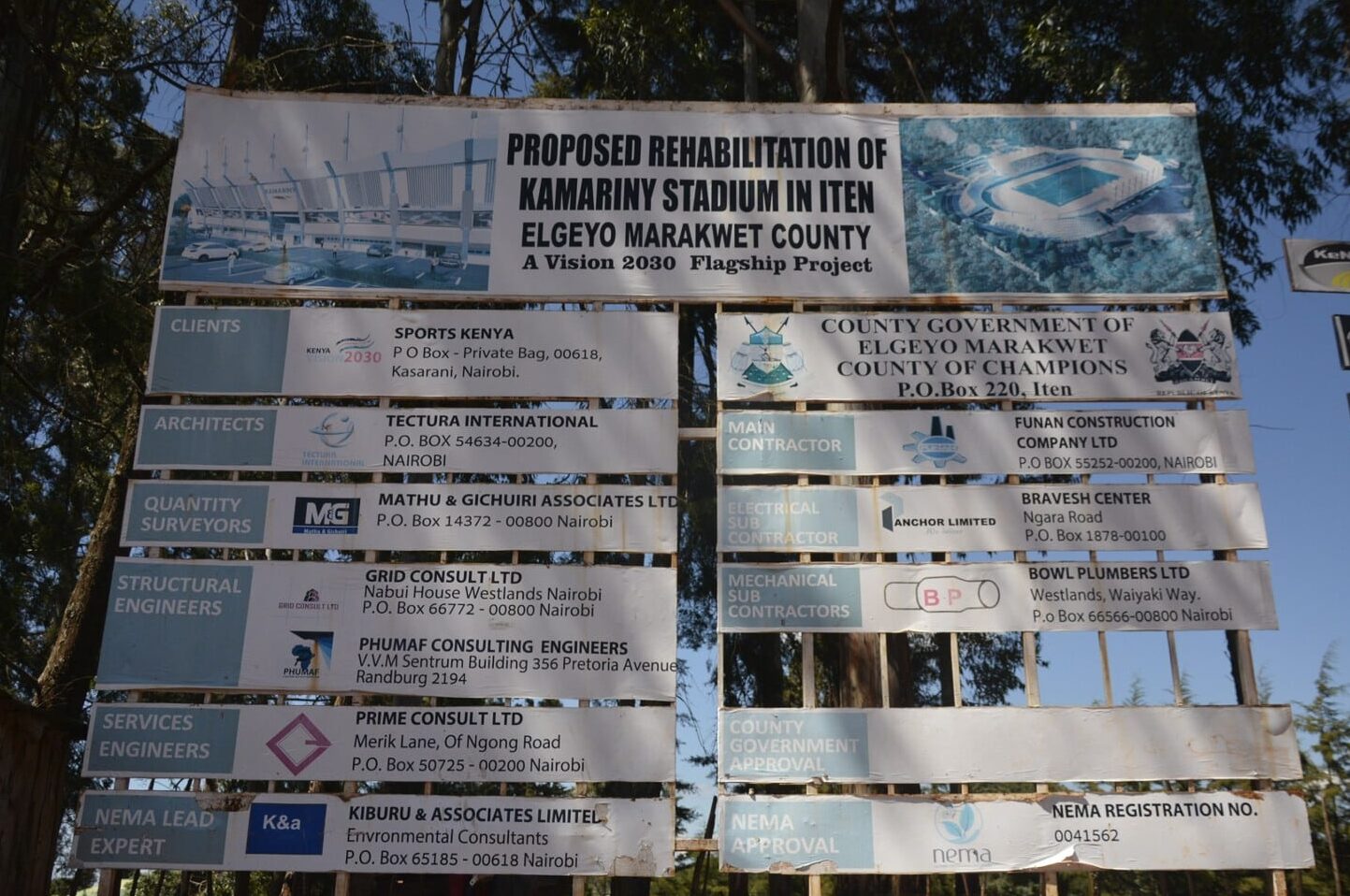By Mfundo Mlilo (Project C01 Future in Chains), Michael Bollig (Project A04 Future Conservation) and Javier Revilla Diez (Project C01 Future in Chains).
Abstract
Victoria Falls, a majestic waterfall designated as a World Heritage site in Zimbabwe, is one of Africa’s well-sought-after tourist destinations. The thriving tourism industry in Victoria Falls emerged from the early days of colonialism in 1900 to occupy an essential position within the British colonial empire and thus played a central role in travel itineraries in Southern Africa. However, alongside its emergent success, previously envisioned within European colonial imagery of leisure and supremacy, participation in the present tourism value chain and value capture is uneven and skewed towards foreign and white-own tourism businesses. These patterns of exclusion potentially mirror the racial structural inequalities imposed by colonialism, which ended in 1980. In this paper, we contribute to scholarship on tourism global value chains (GVCs) by analysing the role and impact of history /colonial past on the current nature of the tourism value chain in Victoria Falls. In this approach, we adopt the concept of Coloniality of power to illuminate past continuities and explain the uneven participation and value capture among actors. More fundamentally, we provide a brief reflection on how tourism GVCs can be extricated from colonial and racial legacies.
Reference
Mlilo, M., Bollig, M., Revilla Diez, J. 2024. Coloniality of power and the imaginaries of tourism in Victoria Falls, Geoforum, Volume 156, 2024. DOI






